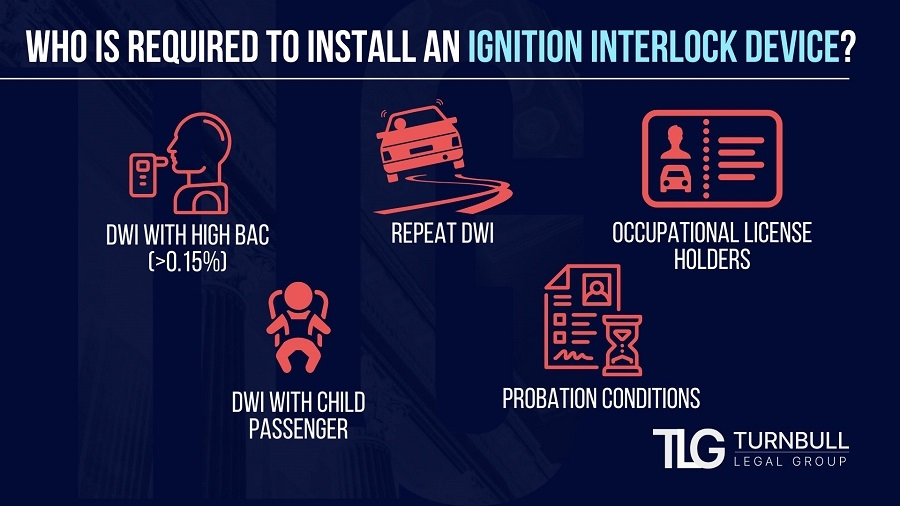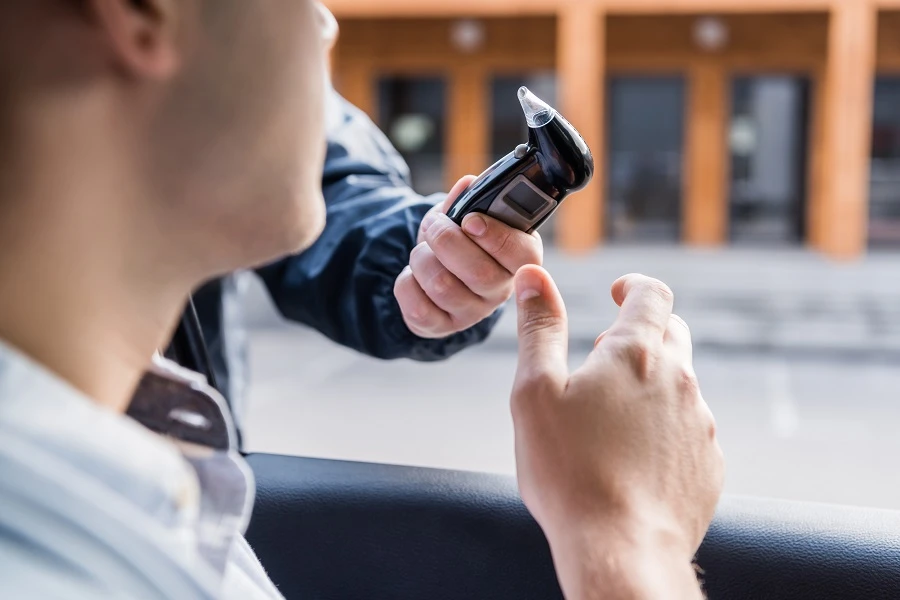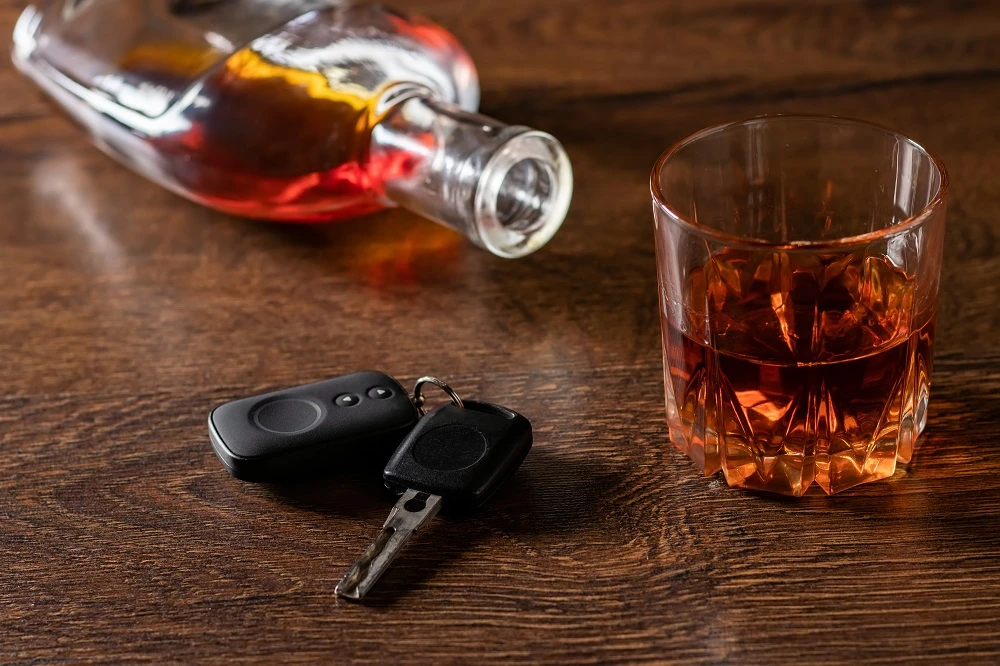An ignition interlock device is a tool mandated for certain drivers with a DWI (Driving While Intoxicated) conviction. This device is designed to prevent drunk driving by requiring a breath sample to start the vehicle. Let’s explore the laws surrounding ignition interlock devices in Texas, including who must install them, the legal requirements, and what to expect if you need an IID.
What Is an Ignition Interlock Device?
An ignition interlock device (or IID) is a breathalyzer installed in a motor vehicle that requires the driver to provide a breath sample before the vehicle’s ignition system will allow it to start. If the device detects alcohol above a preset limit, the vehicle will not start, helping to prevent individuals with alcohol in their system from driving.
Texas Law and Ignition Interlock Device Requirements
Under Texas Transportation Code §521.246, courts may require ignition interlock devices for those convicted of DWI. Whether mandated by the court or state law, IIDs are part of Texas's broader strategy to improve public safety by reducing the risk of repeat drunk driving incidents.
Who Must Install an IID?

Texas law requires the installation of an ignition interlock device for:
- First-Time DWI Offenders with High BAC
Individuals convicted of a first DWI offense with a blood alcohol concentration (BAC) of 0.15% or higher are required to install an IID.
- Repeat DWI Offenders
Those with multiple DWI convictions are mandated to have an IID installed, reflecting the state's stringent measures against repeat offenses.
- DWI with Child Passenger
Drivers convicted of a DWI while transporting a child under 15 years of age must install an IID as part of their penalties.
- Occupational License Holders
Individuals seeking an occupational license during a license suspension period due to a DWI conviction are often required to have an IID installed to regain limited driving privileges.
- Probation Conditions
Courts may impose IID installation as a condition of probation for DWI offenders, ensuring compliance with sobriety requirements.
How the Ignition Interlock Device Works
The ignition interlock device requires a breath sample before the vehicle starts. The device then analyzes the sample for alcohol content. If the sample meets the preset limit (usually 0.02% or lower), the vehicle starts; otherwise, the ignition is disabled.
While driving, the IID may require additional “rolling retests”. These periodic checks are designed to ensure the driver has not consumed alcohol after the initial start.
Installation and Maintenance of an IID
To comply with ignition interlock device requirements in Texas, individuals must arrange for the installation of the device through a certified provider. After installation, the driver is responsible for ongoing calibration, testing, and any maintenance the device requires.

Scheduling an Installation Appointment
It’s essential to schedule an installation appointment with a certified IID provider as soon as possible, especially if court-ordered. Missing an installation deadline may result in further penalties or an extension of the IID requirement.
Reasonable Payment Schedule for IID Costs
The cost of installation, calibration, and maintenance of the IID falls on the individual. However, Texas allows for a reasonable payment schedule for those who demonstrate financial hardship, helping to make compliance more accessible.
Restricted Interlock License
In Texas, individuals with an IID installed may apply for a restricted interlock license. This special license allows individuals with a suspended license due to DWI to regain their driving privileges, as long as they comply with IID requirements.
How to Obtain a Restricted Interlock License
To obtain a restricted interlock license, applicants must:
- Complete any required alcohol education programs.
- Submit proof of IID installation.
- Pay any applicable fees.
Once approved, the restricted license permits the individual to operate a motor vehicle equipped with an IID.

Consequences for Failing to Install an IID
Failing to install a court-ordered IID can lead to further penalties, including extended license suspension, fines, or even jail time. Texas courts are strict about compliance with IID requirements to ensure public safety and prevent further offenses.
Extending the Ignition Interlock Device Requirement Period
If a person violates IID requirements or commits an additional DWI offense while under an IID order, the court may extend the time the IID must remain installed, sometimes twice the period originally mandated.
When Can the IID Be Removed?
Once the Ignition Interlock requirement is fulfilled, and if the court determines that the individual has complied with all IID conditions, the device can be removed. Typically, the IID must remain installed for the entire duration of the suspension or probation period.
Criteria for IID Removal
Texas courts require proof of compliance, including IID calibration and maintenance records. Additionally, any attempts to start the vehicle with a positive alcohol reading could delay removal approval.
IID Requirements for Different DWI Offenses
The severity of DWI penalties in Texas increases with multiple offenses, and the IID requirement often reflects the offender’s history. For example:
- First DWI Offense
IID installation may be required, especially if there are aggravating factors.
- Second DWI Offense
Texas courts almost always mandate an IID for repeat offenders.
- DWI with Child Passenger
In cases involving a minor passenger, IID requirements and other penalties are typically harsher.
Ignition Interlock Devices and Minors in Texas
Texas law imposes stricter consequences on drivers convicted of DWI with a child passenger, including mandatory IID installation. Courts are especially vigilant about these cases, as they involve additional public safety risks.
Can a Minor Operate a Vehicle with an IID?
Only licensed drivers listed on the IID restriction can operate the vehicle. If the minor is of driving age and holds a restricted interlock license, they must comply with all IID requirements.

Texas Department’s Role in IID Enforcement
The Texas Department of Public Safety (DPS) manages the issuance of restricted interlock licenses and oversees IID compliance. DPS works with IID providers and court systems to ensure those required to use an IID adhere to state regulations.
Regular Reporting to DPS
IID providers in Texas regularly submit compliance reports to the DPS. These reports track violations, including failed breath tests, missed rolling retests, or tampering attempts, which could lead to further penalties.
Common Misconceptions About IIDs
Many people believe that only repeat offenders need an IID. However, Texas law allows courts to order an IID for first-time offenders if certain factors are present, like a high blood alcohol level or a child passenger.
Another misconception is that the IID Requirement is optional. Once court-ordered, IID installation is definitely not optional. Noncompliance can lead to additional fines, extended suspension, and potentially jail time.
Contact Our DWI Attorneys to Fight for Your Rights
To summarize, ignition interlock devices are used to prevent drunk driving and allow offenders a second chance to retain some driving privileges under strict conditions. The Texas Transportation Code mandates IIDs for specific DWI convictions, ensuring that public safety remains a priority.
Facing DWI charges in Texas can be overwhelming, especially with strict IID requirements and potential penalties. Don’t face it alone — reach out for dedicated and knowledgeable DWI defense at Turnbull Legal Group. With decades of combined experience, our attorneys will build a strong defense to protect your rights and driving privileges. Contact us to schedule a free case review.
Facing a DWI Conviction? Don’t Go Alone.
We’re here to help you navigate Texas’s laws and safeguard your future.




.webp)

